
In the past seven years or so, a group of very young and talented poets have emerged on the Nigerian literary scene, bringing a new range of experience and attitude that we have scarcely seen in Nigerian verse.
These poets are in their twenties and early thirties. They write poems that are more of personal and autobiographical experience than of the public. This experience is presented with ardent honesty, and in language that comes close to the patterns and rhythms of conversational speech. These poets may have wildly admired the works of their predecessors, for instance, the Okigbos and the Osundares, but little of the master’s influence lingers in their poetry. They appear to have drawn their poetic values elsewhere, especially from American confessional poets such as Sylvia Plath, Anne Sexton and the poets following them.
The most compelling of these young poets, in my opinion, are J.K. Anowe, Logan February, Gbenga Adesina, and Romeo Oriogun. These are some of the poets currently making authentic statements about themselves – what they suffer, what they love, what they witness, what they struggle against, and their dimensions of selfhood and sexuality. Even when they react to public issues, it is often a deeply personal response.
The foreshadowing of this inward turn in our verse can be traced to the feminist works of the mid-nineties written by talented poets, among which are Promise Okekwe, Biodun Idowu, Angela Agali, Toyin Adewale, Maria Ajima. It was in their poetry that we first began to see sustained attempts at self-exploration and self-redefinition. Apart from Uche Nduka, Toni Kan, and Helon Habila, many of the male poets at that time were still preoccupied with public-oriented issues.
What these emergent poets are now doing in this age of ‘digital wokeness’, is to stretch the feminist-pioneered individualist poetic strains, into the darker regions of the psyche, treating them with much more intensity. The most confessional of these poets is J.K. Anowe, an incredibly talented poet who employs pseudonymity to disguise certain aspects of his personality while engaging in fevered explorations of self in his poetry. He has published two poetry chapbooks, to the best of my knowledge, called: Ikemefuna Tributaries: A Parable for Paranoia (2016) and The Sky Raining Fists (2019). The questions that arise when we engage with Anowe’s poetry include: What does it mean to be a person, an individual? How does an individual define his place, what he is and may become amid the pressures and constraints of family and society in twenty-first-century Africa? In “Aubade with Purgatory” for instance, the poet dramatises in intensely wrought language the tension between an individual and his family. He writes:
I do not know love other than the need
to be powerless & be punished for it.
I do not know home other than what I’ve been trying
to be lately – run towards her open mouth.
A lonely house below a stonehill
but fall steadfast into forgetting before reaching.
The poem contains many autobiographical elements. The poet references his mother, his sister, and grandfather. He tells us about an accident he once had while growing up, caused by his sister tripping him:
I pulled my first set of teeth
Falling to the floor – a kiss to the Devil’s scalp
My sister between my mother’s knees
had tripped me.
This accident together with the death of his grandfather becomes one of the signal events in the poet’s childhood and would seem to account for the conflicting emotions and unmistakable sense of alienation we find in his poetry. Amid the demands of family and society, the poet has chosen “the audacity to burn and breath.” This tension, to reconcile his familial and religious ties with his inclination to realise his autonomous self, continues to characterise Anowe’s poetry. We see this even in love poems like “stranger,” “letters to Lucille,” and in that potentially enduring poem, “credo to leave.”
In a society that is still in many ways conservative and resistant to queerness, Romeo Oriogun and Logan February are two queer poets that depict the travails of LGBTQ people. These poets give poignancy to the ache of loneliness and the pain of being of different sexual orientations in a largely heterosexual and heteropatriarchal world. Oriogun writes in “Departure:”
I do know about the hate that sinks a name
& turns water into homes eating boys
& I cannot speak because my mouth is a grave
My father’s ghost roasted a boy found
in the hands of another boy
His ashes look like the sun dying on my skin.
While Oriogun identifies himself as a homosexual, February is non-binary, which seems to account for the complexity and fluidity of sexual self found in their poems. In February’s poem, “Stillbirth, Yemoja,” they tie up this fact in a series of paradoxical statements that seem to show someone trapped in a body yearning to be of the other sexual orientations:
The kind of man who want to be
The kind of woman who bears children
that sound like birds
when they cry
there is a word for rebirth
but it connotes the aftermath.
Of a sticky death. A body is bound
So it sinks when it drowns.
I am unsure that I have enough names.
The last line of the poem above is particularly telling. It reveals the non-binary nature of the poet and their refusal to be confined within the limits of a two-gendered system. The line resonates with the prevailing postmodernist idea of the self being fragmentary, unstable, and provisional. Stephanie Burt argues that “none of us ever find moments when we have at last enunciated the single, true, real, authentic, satisfactory self: instead, we can work to articulate that self as it changes and multiplies and evades us, whether or not we do so with our changing bodies’ physical appearance, whether or not we do it in poems.” LGBTQ themes are still relatively new in our literature, and I guess many of our literary critics are still unable to come to terms with this thing that is gradually becoming a central fact of life in Africa. The danger I foresee when critics finally begin to engage with these themes is that our literature will be over-emphasising the queer qualities in the literary works written by LGBTQ writers at the expense of broader appreciation of their works.
Gbenga Adesina seems to be at his best when he writes very autobiographical poems and poems motivated by the excruciating consciousness of his immigrant status and difference in America. In “Ode to what I do not Know,” he writes:
Some nights I wake up panting, knowing
that I’m a stranger – with ascent, homeless –
in the childhood of my body
Some nights I clench my fist, my teeth.
I try hard to not turn on my bed. I fear
What lives in me might spill and darken the floor.
Adesina’s tone seems always elegiac even when he writes about familial ties.
We see this in ‘surrender’ his award-winning poem;
once, I ran out
of a room
because the song
on the radio
was a fist
in the nook of my neck
I stood
on the street,
quietly weeping.
There are several other poets ascending equally astonishing peaks of artistry with their offerings. D.M. Aderibigbe interweaves his poetry in English with fragments of Yoruba in new, very interesting ways. Umar Sidi’s lines are full of long ratiocinative vigour. Rasaq Malik and Saddiq Dzukogi have continued with the protest tradition which comes from direct political engagements. Kechi Nomu, Hauwa Shafil Nuhu, and Kanyinsola Olorunsola are among the many poets that are currently redefining Nigerian poetry.
If there is anything that connects all these poets with diverse styles and temperaments, it is their valorisations of the body, in all its complex dynamisms, often making it serve as the well-spring for their self-affirmations and sometimes deploying it as a vehicle for political expression. The other thing is their sensibility towards the narrative with lyrical undercurrents. I am particularly gratified to see this turn towards the narrative in our verse. It is one major poetic tradition that our verse has lacked. Is it not curious to note that for over six decades of great and enduring works in African verse, that it should be very thin on narratives? As I have said before, the voices and rhythms that we have heard in our verse have been ratiocinative vis-a-vis Okigbo/Soyinka generation and declamatory vis-a-vis Osundare/Ojaide generation.
We often hear some of our novelists and poets claim childhood stories as one of their sources of inspiration. While we can see the influence of the narrative mode of these stories in some of the novelists’ works, we hardly see that in the poetry of the poets. Until now there has been very little of the narrative conventions in our verse. Fiction was generally considered as the only province for narratives in our literature. Our poets who were often praised for their adept use of African oral traditions in their verse, seemed to have concentrated only on the rhetorical aspects of our oral traditions, leaving the narrative conventions unexplored. Perhaps this was so because the rhetorical resources in our African literary heritage have proved the most amenable to the poetic form (in English). But the rhetoric we find in African Oral Literature always comes within the context of a narrative. When an African elder laces his language with proverbs or even songs, it is always done within the context of a narrative.
This is an important fact we appear to have forgotten. Our traditional African literary heritage offers us ample examples of great blending of narratives, rhetoric, and drama in such works as Ijaws’ Ozidi Saga, Mali’s Epic of Sundiata, and The Mwindo Epic by Nganga people of Congo. I am not saying our new poets should return to the African oral aesthetics that have been worn thin by the previous poets. What Anowe has attempted in “Ikemefuna Tributaries” and what Aderibegbe is doing in his poems comes close to what I am advocating.


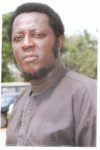

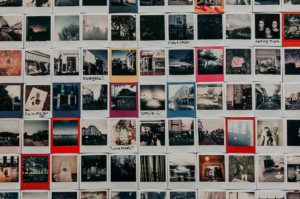
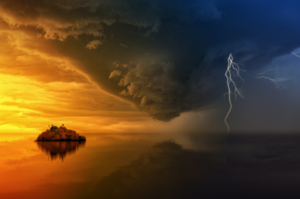
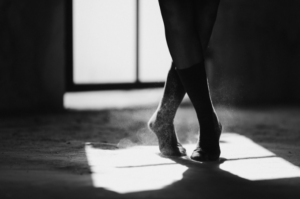
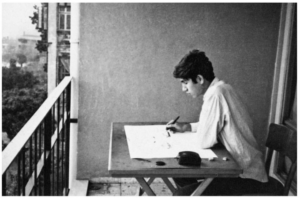
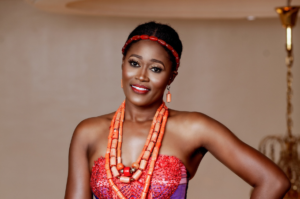

Ugochukwu Anadị April 22, 2022 08:06
I have to return to this essay this afternoon and I still find it wonderful -- for lack of better descriptive words.